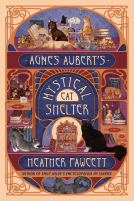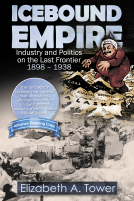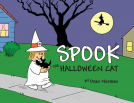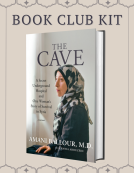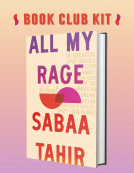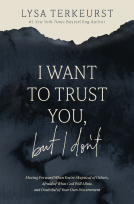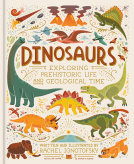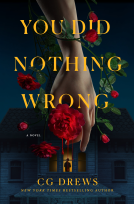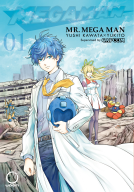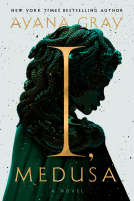
High Couch of Silistra
by Janet Morris
This title was previously available on NetGalley and is now archived.
Send NetGalley books directly to your Kindle or Kindle app
1
To read on a Kindle or Kindle app, please add kindle@netgalley.com as an approved email address to receive files in your Amazon account. Click here for step-by-step instructions.
2
Also find your Kindle email address within your Amazon account, and enter it here.
Pub Date Jan 30 2016 | Archive Date May 02 2017
Description
Caution: Adult Content
One woman's quest for self-realization in a distant tomorrow.
Her sensuality was at the core of her world, her quest beyond the civilized stars.
Aristocrat. Outcast. Picara. Slave. Ruler.
At the twilight of time, she could refuse no man her body, but her will governed her world.
Long ago the human colonists of Silistra waged a war so vicious that centuries later the planet has not recovered. Men and women alike suffer from infertility -- the deadliest legacy of that deadly war. Because the birth rate is so low, the Silistrans value above all else the ability to bear children... and their social order is based on fertility and sexual prowess. On a planet desperate for population, women hold the keys to power. These are the adventures of Estri, Well-Keepress of Astria and holder of the ultimate seat of control: the High Couch of Silistra.
"The best single example of prostitution used in fantasy is Janet Morris' Silistra series... Estri's character is most like that of Ishtar who describes herself as “‘a prostitute compassionate am I’” because she “‘symbolizes the creative submission to the demands of instinct, to the chaos of nature ... the free woman, as opposed to the domesticated woman’”. Linking Estri with these lunar and water symbols is not difficult because of the moon's eternal virginity (the strength of integrity) links with her changeability (the prostitute's switching of lovers). [...] Morris strengthens the moon imagery by having Estri as a well-keepress because wells, fountains, and the moon as the orb which controls water have long been associated with fertility [...] In a sense, she is like the moon because she is apparently eternal, never waxing or waning except in her pursuit of the quest; she is the prototypical wanderer like the moon and Ishtar. She is the eternal night symbol of the moon in opposition to the Day-Keepers [...] At her majority (her three hundredth birthday), she is given a silver-cubed hologram letter from her mother, containing a videotape of her conception by the savage bronzed barbarian god from another world. [...] If Estri’s mother then acts as a bawd, willing her lineage as Well-Keepress to her daughter, then Estri's great-grandmother Astria as foundress of the Well becomes a further mother-bawd figure when she offers her prophetic advice in her letter: “Guard Astria for you may lose it, and more. Beware of one who is not as he seems. Stray not in the port city of Baniev ...look well about you, for your father’s daughter’s brother seeks you”. Having no brother that she knows of does not stay Estri from undertaking the heroic quest of finding her father.” — Anne K. Kaler, The Picara: From Hera to Fantasy Heroine
A Note From the Publisher
The Silistra Quartet explores a future in which biology controls reality.
High Couch of Silistra, first of the quartet, is a novel of sex, power, metaphysics and adventure told from the perspective of one world's most desirable courtesan.
"We are all bound,” is the great truth of Silistra: Bound by biological necessity and genetics, the men and women of Silistra struggle to sort Nature from Nurture – where Nature always wins.
Welcome to Silistra, a glimpse of a far distant future wherein a civilization proclaims the greatest feat an individual can perform is to produce one child, yet distrusts the sciences that brought them to the verge of extinction. Here women and men coexist uneasily in a society ravaged by war, technology, and infertility, each vying for power, seeking dominion over one another.
Be warned, if your tastes run to simplistic plots, throbbing organs, swooning damsels or kick-boxing women in men’s armor, Silistra may be too challenging. Misogynists, misanthropes, misandrists, or "ists' of any stripe, this is not the book for you.
High Couch of Silistra, first of the notorious Silistra Quartet, brings us to a realm where thought alters probability, where creativity is inextricably linked to the urge to own and dominate, and where the universe itself is amenable to a focused mind. Rooted deeply in humanity’s mythic past yet unaware of the planet Earth, High Couch of Silistra begins one woman’s quest for self-knowledge – with surprising results.
Advance Praise
"Engrossing characters in a marvelous adventure." - Charles N. Brown, Locus Magazine"*****
'The best single example of prostitution used in fantasy is Janet Morris' Silistra series." - Anne K. Kaler, The Picara: From Hera to Fantasy Heroine*****
Marketing Plan
Advertising in: Amazing Stories Magazine, Clarkesworld, Black Gate Magazine, Thunderclap, Ingram Advance/Podcasts and interviews.
Available Editions
| EDITION | Hardcover |
| ISBN | 9780996428972 |
| PRICE | $36.00 (USD) |
Average rating from 39 members
Featured Reviews
 Walter R, Reviewer
Walter R, Reviewer
What a remarkable feminist text. The fact that this was originally published in 1977 is absolutely astounding. I found this book to be similar and far superior to the oft praised "The Handmaid's Tale" (published in 1985). In my opinion, "The Handmaid's Tale" is a very masculine interpretation of femininity (which includes absolute sexual domination). "High Couch" on the other hand, explores the idea of female dominance through sexuality.
I can only imagine what it must have been like to read this in 1977. There are some very complex scenes, where the protagonist is essentially raped (these moments are not given in graphic detail, but are merely plot elements). However, these scenes are highly ambiguous, and even the character's interpretations of these moments will have you contemplating them for days. The author, Janet Morris, has created a time capsule which demonstrates the mindset of powerful women back in 1977. The surprise is that the mindset revealed is not so different than the modern one.
I think that only recently has our cultural perspective evolved enough to give this novel its due. Less perceptive readers will probably not even be able to recognize this book as a feminist text even today...much less in 1977. However, I feel that this book is even more important than "The Handmaid's Tale." Perhaps we'll see "High Couch" in college courses in another 50 years or so (that it would eventually displace "Handmaid's" is inevitable in my opinion).
I also caught a bit of the same vibe I experienced when reading "Dune" (originally published in 1968). On an SF level, there is magic here and the world-building is first rate. However, I was far more captivated by a talented female author approaching a dialogue of sexuality within a novel written in the 70s. Very, very interesting work.
The writing too is top notch. I read a lot of books, and usually after a couple pages I find myself skimming while keeping an eye out for the plot points I know are coming. Not the case here, this is a novel that makes you put off all other tasks so you can concentrate fully on every word. Give it a look, and prepare to have your mind blown!
 Deborah M, Reviewer
Deborah M, Reviewer
High Couch of Silistra by Janet Morris. Wow! I happily received an ARC in exchange for an honest review. I have to say it was uniquely interesting, and found it hard to put down. The well-written main character, Estri Hadrath Diet Estrazi, reeks of sexuality. She runs into many complex situations, some of which are quite violent. “Silistra was the catalyst to the sexual revolution in the year twenty-two thousand seven hundred and four Bipedal Federate Standard Time.” That line alone grabbed my attention right from the start. I'm not one to give out spoilers as plenty of other reviewers have fleshed it out quite well. But if you love sci-fi fantasy, eroticism, violence, and adventure, you won't want to miss this one. It will not disappoint!! This is book one in a quartet, and looking forward to book two. I give it high marks, and wish I could give more.
 Seth L, Reviewer
Seth L, Reviewer
Janet E. Morris’s High Couch of Silistra is Intense, Sex-Infused Fantasy for Thoughtful Readers
In 1977, an intellectual female author wrote a debut, fantasy/sci-fi novel featuring a heroine in a dystopic, alien world striving to discover her mysterious past & god-like ancestry; in 2015, her debut novel was reprinted. Some may assume I am referring to Tanith Lee who passed away recently; her 1975 debut The Birthgrave was reprinted in 1977 and this year which I just read/enjoyed/reviewed. However, I am referring to Janet Morris’s 1977 High Couch of Silistra; this reviews her ‘author’s cut’ version, coincidentally released this year. Janet Morris’s style is quite different that Lee’s, though fans of the Birthgrave would certainly devour High Couch.
Intense Sex: One would wrongly assume that High Couch of Silistra is a purely 1970-feminist-movement book; the role of sex, rape, and fertility is posited to make the reader tense. The protagonist Estri is a woman of Silistran origin (alien with human form) and most Silistran’s are reliant on humans to become impregnated, which is a rare event. The culture and expectations of purchased sex, often brutal but sometimes passionate, are constantly present. Somehow, Janet Morris manages to write all this erotic-infused adventure in an intellectual, almost dispassionate voice. This is not shallow romance/soft-pornography. Nor is High Couch of Silistra gratuitous whoring. This is mature-rated, engaging fantasy.
Tension: Without spoiling, note that characters watch their parents have intercourse, men rape other men, and woman lusting after men who abuse them. In real life, these situations would appall me. My test for rationalizing my comfort level and reading onward was: if Estri tolerated her predicaments, than so should I. The constant tension between the book’s acceptable behavior and today’s societal norms took me beyond reading the story. It made reading this more than adventure. It made me think. Janet Morris’s intent was to play with controversial sexual and societal themes; she delivered with Estri’s journey, full of codependent genders & races, an intricate alien world, and psychedelic magic.
Cover Art & Interview: In Janet Morris’s 2014 interview on Beauty in Weird Fiction she said that “Human extravagances and limitations are what, for me, Silistra is about, but it is not a series for the erotically-averse, or the intellectually timid.” As a reader/reviewer, I could not agree more with that self-assessment. In that interview she also noted her dislike of the 1977 cover art Boris Vallejo that depicted Estri with a brass bra and Gucci boots. For the author’s cut, she employed artist Roy Mauritsen who presented a more intellectual design for the Silsitra quartet by dividing the Dancing Maenad in (a Roman relief) over the four books (photo by Ana Belén Cantero Paz).
Genre & Theme: This futuristic, dystopian world has science-fiction elements (space/time travel, some technology), but leans toward fantasy (alien beasts with hybrid/mythological designs; sorcery like telepathy/mind reading; fighting that is melee/blade-focused). Ubiquitous themes of procreation, fertility, and “shaping” the world add depth. The Silstra Quartet seriesThe series continues, the remaining three presumably to be released in the near future (since the covers are designed.)
 Alexis l, Reviewer
Alexis l, Reviewer
Wow that's all I have to say come grab a book you will love it
 Althea M, Book Trade Professional
Althea M, Book Trade Professional
A re-read.
I first read this book because my mom checked it out of the library for me. She knew I liked fantasy, and came home with a random selection of paperbacks... this was one of them. I was probably eleven or twelve? My mom was not a fan of 'trashy' books, and I read this with big eyes, hoping that she didn't decide to peek inside... Nope, she never did, and I got all the sequels out of the library later, too. She had absolutely no idea what she'd provided me with.
My five-star rating is taking that early experience into consideration. Is this a great work of literature? No. But it was certainly something that made a lasting impression on me. Going back to read it again, decades later, I wasn't sure how I'd feel about it.
I remembered the basic story: Estri, a beautiful woman of the planet Silistra, is the High Couch of Astria - one of the most powerful people on the planet, and also a high-paid prostitute. Due to their difficulty in having children, Silistra has developed an interesting economic system. Promiscuous sexuality is expected, and status and power is centered around the 'wells' - brothels run and controlled by women. However, this is no 'feminist' paradise - a woman becomes a man's property if he manages to impregnate her. Childbearing is one of the most important social responsibilities on Silistra, symbolized by the twisted chain called the chald worn by all upstanding citizens - so it's a desired outcome.
Born into the Well system, Estri has no idea who her father is, but knows that he was an offworlder. When her mother dies, she lays an obligation on her to find her father. The book follows Estri on this quest. And along the way, Estri has a lot of sex. Of various kinds. A lot of it thoroughly non-consensual. With a great many different people.
On re-reading, the sex wasn't quite as graphically explicit as I'd remembered, but it was clear enough, and, really, just as racy as I'd thought it was. Some of the descriptions (especially of the outfits) were amusingly 1970's-tinged. I still found it enormously entertaining. Just keep in mind that this is primarily a sex-fantasy and only secondarily a sci-fi-fantasy. However, it doesn't allow the sex to get in the way of a good story either, or to 'dumb it down.' The mix works for me.
If you like 'Barbarella' - you'll probably like this series.
Many thanks to Perseid Press and NetGalley for the opportunity to read the newly released eBook. As always, my opinions are solely my own.
 Paula D, Reviewer
Paula D, Reviewer
"The High Couch of Silistra" is the first novel of the Silistra quartet that Ms. Morris wrote in the late 70s and early 80s. This book was her first science fiction novel and is an excellent space fantasy tale.
The novel is an intersection of the feminism, sexual revolution and fantasy fiction of the 70s. It is entertaining and provocative in following the adventures and exploits of Estri, the heroine of the series. This is a youthful quest saga that is very well done.
This is an enjoyable and still entertaining novel though it is almost forty years old. A nice change from hard science fiction.
I made the mistake of thinking this was aimed at YA/Teen... oops. I enjoyed the story and am surprised that I do not hear more about this novel. I will have to promote it for those special readers who would enjoy this book.
 Sarah B, Reviewer
Sarah B, Reviewer
This was a very entertaining book, but I'd stop short of calling it feminist or particularly insightful into female sexuality. The woman in this book becomes enthralled by lovers of increasing cruelty from one to the next. The premise seems to be that men or women who embrace their inner beast are the most enlightened and superior. I'm not arguing that physical domination isn't sometimes a very sexy thing, but this story isn't really getting that right, in my opinion. Glorifying prostitution is a bit precarious and not very feminist either. However, aside from disagreeing with this label of "feminist", it's a very well told, interesting story and well worth reading for that reason!
It's great to see this Janet Morris series back in print. Although it wears its age unevenly in terms of modern feminist/egalitarian sensibilities, it's great fun. A well-constructed world that blends science fiction with fantasy-like elements, its language is evocative of H. Rider Haggard or Edgar Rice Burroughs,
 Elena C, Reviewer
Elena C, Reviewer
I think that, like a lot of readers, I didn't quite know what to make of this book. Is it a brilliant examination of sexuality and gender, or a highly disturbing portrayal of rape fantasies? The answer is probably: both. In any case, it will certainly make you think hard about sex, gender, and consent.
First things first: as a work of fantasy/science fantasy it is excellent. It melds fantasy and sci-fi tropes to create a galaxy full of alien races where space travel is normal, but most of the action takes place on a low-tech world where powers we would be more likely to think of as "magic," such as mind-reading and foresight, are common. The world and its culture are described in all their exotic detail, but without the descriptions being tedious or forced. And the world IS is exotic and refreshingly different from other fantasy worlds I've encountered: the concept of chaldra (essentially duty), the Wells, the exotic foods and drugs that the characters consume--all of this comes together to create the impression of a culture that is complex yet coherent, unique yet recognizable, luxurious yet harsh. Furthermore, the decision to narrate the story from a single female character's point of view, and to eschew grand battle scenes and so on in favor of intrigue, scheming, and maneuvering, all seen from close range, makes this a very different sort of a story than the bulk of fantasy and sci-fi out there.
And as for the main character's point of view...this is where things become ambiguous (which is not a bad thing in fiction). Reproduction has become difficult for the human inhabitants of this world, and in order to give women the best chance of conceiving as possible, prostitution is common and socially acceptable. Many women work as Well-women (the Wells are essentially high-class brothels) or coin-girls (street hookers, basically) as a way to ensure access to as many sexual partners as possible, thus increasing their likelihood of bearing a child. Estri (our heroine), is the Well-Keepress of Astria, the best of the Wells. Society, especially that surrounding the Wells, is semi-matriarchal, and, as mentioned above, women actively seek out sexual partners. In many ways the treatment of sexuality and gender in this novel throws our own conceptions of it on its head.
And yet, and yet, these well-women are treated as chattel, with no choice as to who their sexual partners are--any man with money can buy their services, and they cannot refuse them. Estri herself suffers numerous episodes of rather appalling sexual abuse, some of which she brushes off as inconsequential, and some of which she almost enjoys, or at least, still has warm feelings for its perpetrators afterwards. As the novel progresses she even seeks out a partner who humiliates her and makes her feel inferior, in part because of those very qualities.
But, and this is important, it is always Estri who ends up as the survivor and the "winner," if you will, of these encounters. Her rapists are killed, and her bullying and abusive partners change their attitude towards her or are discredited and disempowered, while she herself gains almost god-like powers as the book progresses. Despite its apparent preoccupation with sex, the story, and Estri herself, seem to say that ultimately sex is just not that important, and that those who put too much stock in it, or try to use it to gain power over another, are wasting their time and chasing after something they can never catch. Estri's story is not so much the story of a woman who revels in sexual exploitation and degradation as the story of a woman who has the leave the world of her mother behind--literally, in her case--and, clawing and fighting, make her way through the dangers of the world of her father, learning how to deal with the inevitable danger and abuse that will fall upon a woman who makes that step, until she can assimilate both the power of the mother AND the father, and take her rightful place in the world. This is not a simple read, even if it is a riveting one, but it is certainly provocative, challenging, and unique.
I received a free copy of this book from NetGalley in exchange for an honest review.
-I would like to give a big thank you to Perseid Press for the paperback copy of this book!-
The men and women living on Silistra are governed by a hierarchy of sexual desire and fertility. Infertility is a widespread issue that allows the most sexually appealing women the greatest power. Estri is among the most powerful in the land—she holds the position of the high couch of Silistra. Estri’s mother died during childbirth and she has yet to know much about her father. She is sent on a quest to find her father and discover the secrets that his kind may hold.
In my opinion, this should be a classic science fiction book, especially for those who love female protagonists. Estri is a strong woman who leads with her body and her wit. She was really fun to join on this adventure across strange lands. I thought she was by far the most interesting character in the book, so I naturally paid a lot of attention to her and was left wanting more. I love strong-minded (and, in this case, bodied) women who don’t take any bs from men to whom they don’t owe anything. Go Estri!
I also thought it was cool to hear about the customs of these different societies that Morris so brilliantly created. Estri visits a few places that each have their own customs. I’m not sure how Morris made them so unique, but she found a way to make them all intriguing.
When I got to some of the first sexual scenes, I was a bit confused. I was thinking that Estri was submitting to men as a way of giving up. I soon realized that I was thinking in the mind of someone from our world, not Silistra’s. In actuality, Estri was pleasing these men as an act of power and domination. Switching into this mindset was very freeing.
I was searching for a good science fiction read, and I definitely found it. "High Couch of Silistra" is full of new cultures and creatures to study. I can’t stop thinking about how I really want to meet a hulion, a big cat with wings and a mane. I definitely want to read more of The Silistra quartet and follow Estri on more adventures. If you’re a science fiction lover (especially with a passion for female protagonists), you’ll love this book.
Readers who liked this book also liked:
Silvia Moreno-Garcia
Historical Fiction, Literary Fiction, Sci Fi & Fantasy
We Are Bookish
Biographies & Memoirs, Health, Mind & Body, Nonfiction (Adult)
We Are Bookish
Multicultural Interest, OwnVoices, Teens & YA
Yuushi Kawata
Comics, Graphic Novels, Manga, Entertainment & Pop Culture, Teens & YA
